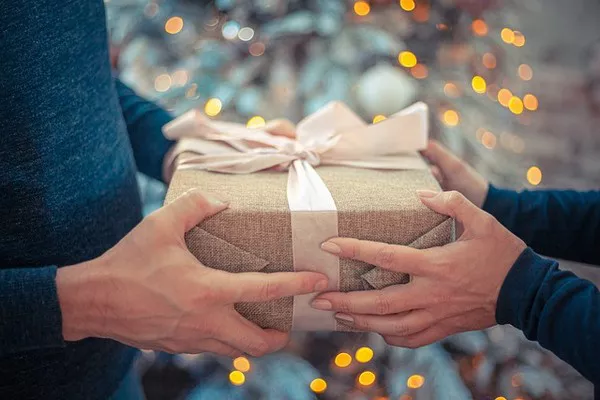Canada, a vast and diverse nation, is home to a rich tapestry of cultures, each contributing to the vibrant mosaic of holiday celebrations observed across the country. From coast to coast, Canadians embrace a multitude of traditions, reflecting the multicultural fabric of this great land. Whether it’s the festive cheer of Christmas, the joyous celebrations of Hanukkah, the reflective observations of Ramadan, or the spirited festivities of Indigenous cultural holidays, Canadians come together to mark these occasions with warmth, hospitality, and a sense of community.
Christmas: A Season of Joy and Tradition
For many Canadians, Christmas is a cornerstone of their holiday celebrations. Beginning in early December, cities and towns across the country are adorned with twinkling lights, festive decorations, and the unmistakable scent of evergreen trees. Families gather to decorate their homes, trimming trees with ornaments collected over the years and hanging stockings with care.
The Christmas season is marked by a flurry of activities, from bustling holiday markets offering handcrafted gifts and seasonal treats to the enchanting displays of light shows and parades. In cities like Toronto, Vancouver, and Montreal, iconic landmarks such as Nathan Phillips Square, Stanley Park, and Old Montreal are transformed into winter wonderlands, drawing visitors from near and far to experience the magic of the season.
Central to the Christmas festivities are cherished traditions such as the exchange of gifts, the indulgence in festive feasts, and the singing of carols. Churches hold special services, retelling the story of the birth of Jesus Christ, while community organizations host charitable events to spread goodwill and cheer to those in need.
Hanukkah: The Festival of Lights
For Canada’s Jewish communities, Hanukkah holds a special significance, commemorating the rededication of the Holy Temple in Jerusalem. Lasting eight days and nights, Hanukkah is a time of joy, remembrance, and celebration for Jews around the world.
In Canadian cities with significant Jewish populations, such as Toronto, Montreal, and Vancouver, Hanukkah is observed with traditional rituals and customs. Families gather each evening to light the menorah, adding a new candle to mark the passing days of the festival. Children eagerly anticipate spinning the dreidel, a four-sided spinning top, while indulging in sweet treats like latkes (potato pancakes) and sufganiyot (jelly-filled doughnuts).
Hanukkah celebrations extend beyond the home, with synagogues hosting communal candle lighting ceremonies, festive dinners, and cultural events that showcase the rich heritage and traditions of Jewish life. In multicultural Canada, Hanukkah serves as a reminder of the diversity and inclusivity that defines the nation’s identity.
Ramadan: A Time for Reflection and Renewal
For Canada’s Muslim communities, Ramadan is a sacred month of fasting, prayer, and spiritual growth. From dawn until dusk, observant Muslims abstain from food, drink, and worldly distractions, focusing instead on self-discipline, introspection, and acts of charity.
During Ramadan, mosques across Canada are filled with worshippers attending nightly prayers known as Taraweeh. Families gather for Iftar, the evening meal that breaks the day-long fast, sharing in the joy of communal feasts and fellowship.
In cities like Toronto, Calgary, and Edmonton, Ramadan is celebrated with vibrant street festivals, cultural performances, and charitable initiatives aimed at supporting those in need. From food drives to fundraising campaigns, Canadians of all backgrounds come together to embrace the spirit of compassion and generosity that defines Ramadan.
Indigenous Holidays: Honoring Ancestral Traditions
In addition to mainstream religious observances, Canada is also home to a rich tapestry of Indigenous cultures, each with its own unique traditions and ceremonies. Throughout the year, Indigenous communities across the country mark a variety of seasonal holidays and sacred ceremonies that honor the land, ancestors, and cultural heritage.
One such holiday is the Summer Solstice, known as National Indigenous Peoples Day, celebrated on June 21st each year. Across Canada, Indigenous communities gather to celebrate with powwows, traditional dances, drumming circles, and feasts that showcase the resilience and vitality of Indigenous cultures.
Another significant observance is the Midwinter Ceremonies, which vary among different Indigenous nations but often involve rituals and ceremonies aimed at renewing connections with the natural world and seeking guidance from ancestral spirits. In many communities, these ceremonies include traditional dances, storytelling, and the sharing of traditional foods.
As Canada continues its journey of reconciliation with Indigenous peoples, there is a growing recognition of the importance of honoring and preserving Indigenous traditions and ceremonies. From the recognition of National Indigenous Peoples Day as a statutory holiday to the revitalization of Indigenous languages and cultural practices, Canadians are working together to build a more inclusive and equitable society.
Conclusion: Unity in Diversity
In Canada, the holidays serve as a time for celebration, reflection, and connection with loved ones. Whether it’s the joyous festivities of Christmas, the time-honored traditions of Hanukkah, the spiritual observances of Ramadan, or the cultural celebrations of Indigenous holidays, Canadians come together to embrace the diversity that defines this great nation.
As we gather around the table, exchange gifts, and share in the spirit of goodwill, let us remember that it is our differences that make us stronger. In celebrating our shared humanity and the rich tapestry of cultures that make up the Canadian mosaic, we reaffirm our commitment to building a more inclusive, compassionate, and harmonious society for future generations to come. Happy holidays to all!
Related topics:
How To Apply For A Canadian Working Holiday Visa

